[ad_1]
Save waste from landfills and begin a composting pile immediately. It’ll mean you can morph your waste into free soil, saving you cash when it’s time for planting. You assist the setting and your pockets whenever you resolve to start out composting!
Compost isn’t troublesome to make, nonetheless info on-line could confuse you as you see bins, tumblers, and all kinds of strategies that worth cash prior to you begin. Actually, all that it is important to start out a pile is a pitchfork, waste, and a few area contained in the yard.
The following resolution to make is whether or not or not or not you need scorching or chilly pile. Each strategies have advantages and disadvantages, they usually take utterly completely completely different parts of time to complete. Let’s see how the gives you add, the work you set in, and the easiest way heaps time you may have dictate what type it is important to make.
Metropolis Worm Thermometer – Wonderful for the Yard & Worm Bin
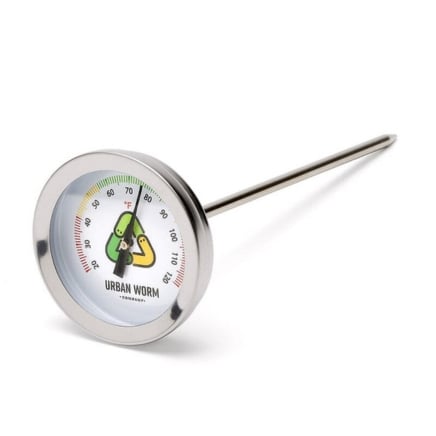

The stainless steel stem penetrates as rather a lot as 5-inches into soil to provide most likely probably the most proper studying. And the inexperienced, yellow, and purple tick marks mean you can understand whenever you’re contained in the optimum zone to your soil microbes and worms.
The Quick Reply
Scorching compost decomposes shortly nonetheless requires extra upfront labor than chilly composting. It’s usually greater in nitrogen than carbon, since fleshy inexperienced elements decompose prior to dry brown ones. Chilly compost decomposes slowly nonetheless wishes rather a lot a lot much less repairs and water.
The Extended Reply
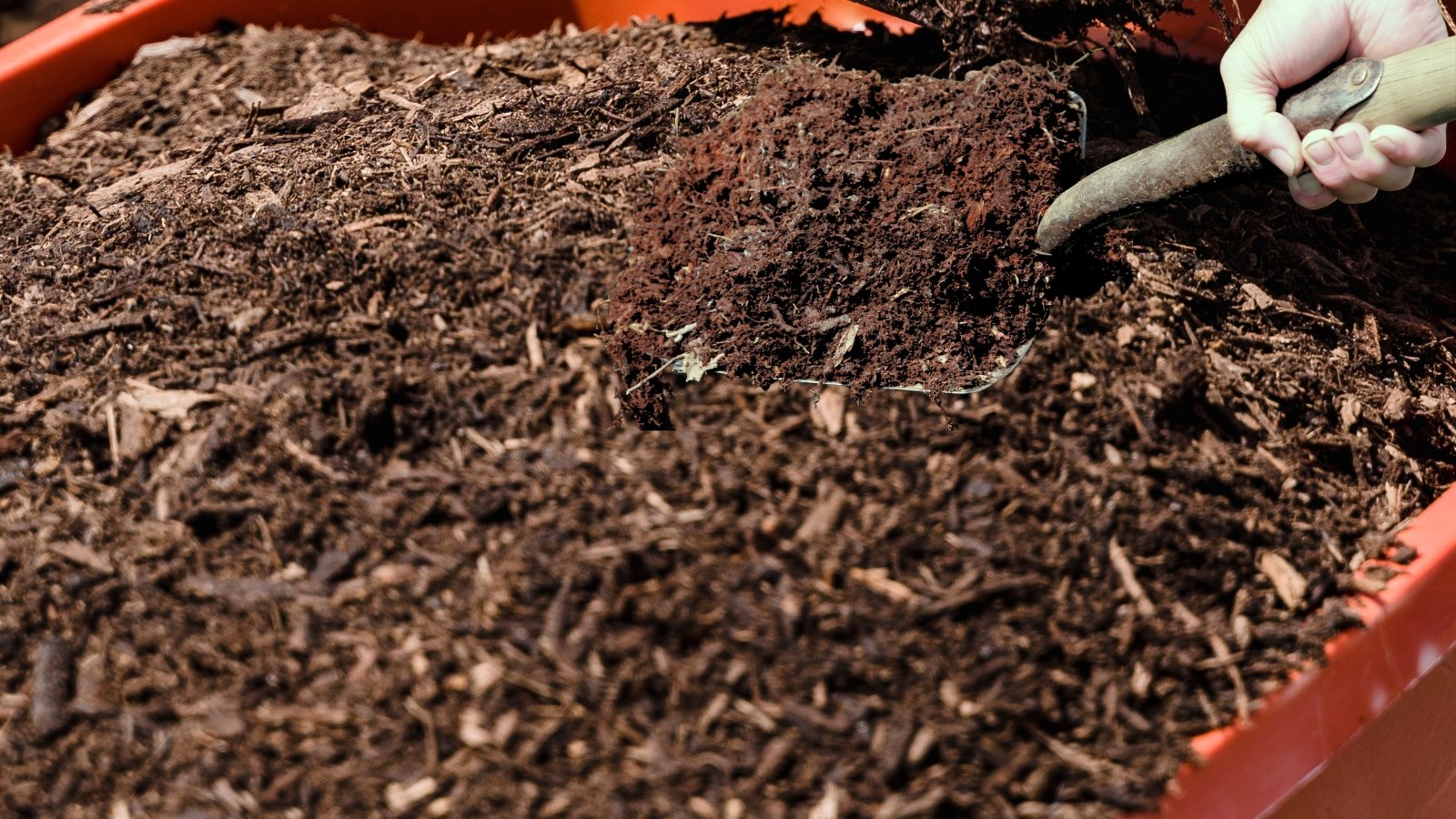

Whether or not or not or not it is important to make scorching or chilly compost relies upon upon how heaps waste you may have and what sort of mulch you’d want to create. Let’s break down what areas chilly and warmth composting apart from one another and which methodology is most interesting for you!
Scorching Compost is Fast
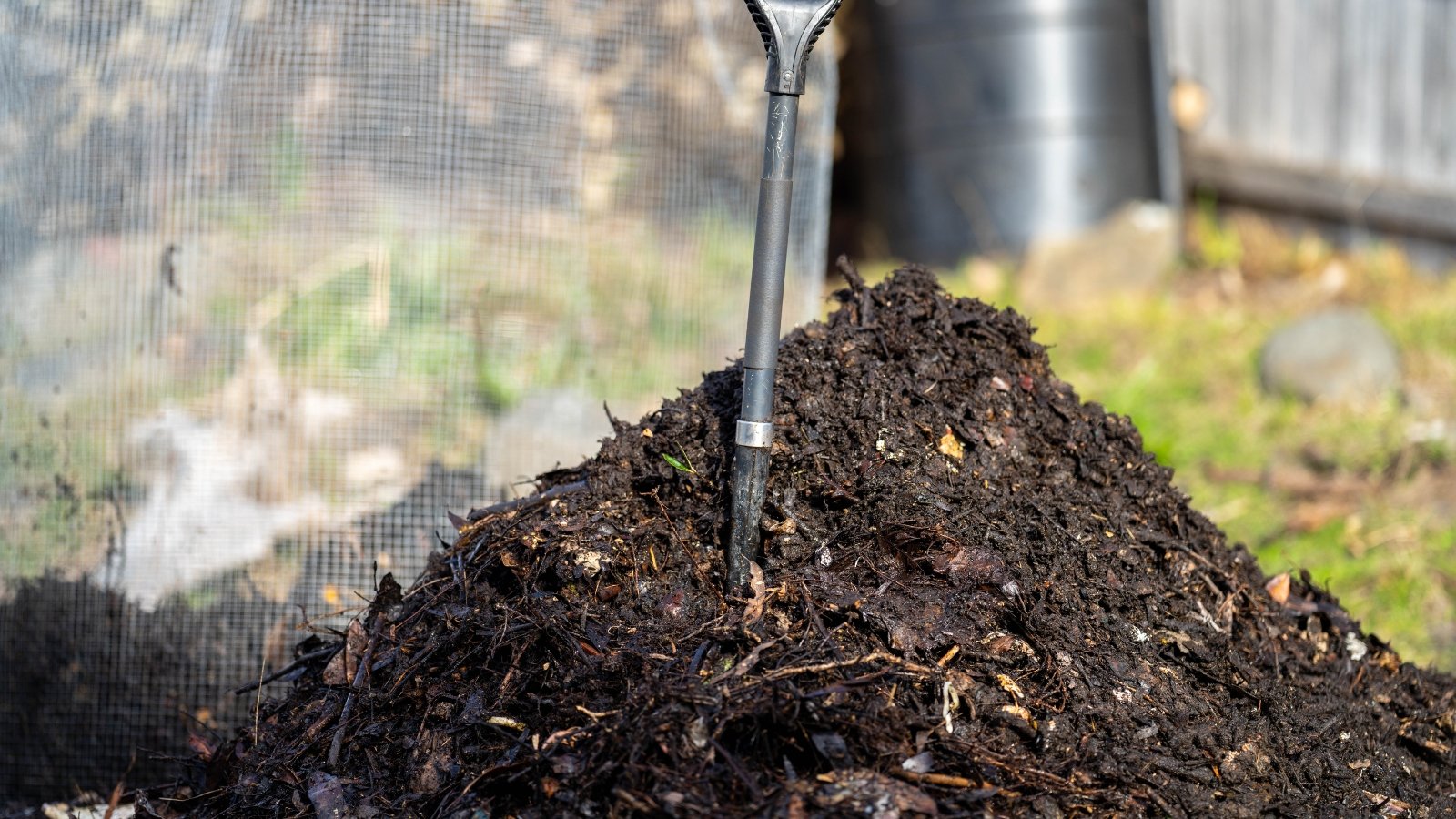

Scorching piles decompose waste shortly, as they assist the microbes and small creatures develop and reproduce. You’ll be able to have prepared compost to make the most of in your yard anyplace from two to 3 weeks.
Merely layer inexperienced and brown provides in a ratio of 1:2 or 1:3 in a pile three ft intensive and tall. For each shovel filled with fleshy inexperienced provides, you’ll add two or three shovelfuls of dry, brown waste. This maintains a superb weight ratio of 30 elements carbon to a minimal of 1 half nitrogen. Use this chart with C:N ratios to go looking out out your superb steadiness.
| Carbon-Wealthy Browns | Carbon:Nitrogen Ratio | Nitrogen-Wealthy Greens | Carbon:Nitrogen Ratio |
| Fallen leaves | 30-80:1 | Kitchen scraps | 15-20:1 |
| Straw | 40-100:1 | Fleshy plant waste | 15-25:1 |
| Picket chips and sawdust | 100-500:1 | Grass clippings | 15-25:1 |
| Chemical-free paper merchandise | 150-550:1 | Manure | 5-25:1 |
The important issue with scorching composting is widespread turning and watering. You’ll wish to make use of your pitchfork to rotate your gives day-to-day or each completely completely different day. Turning facilitates airflow, which is ready to enhance how heaps oxygen is contained in the heap. Low oxygen creates anaerobic decomposition, which is smelly, gradual, and attracts animals. Flip your gives day-to-day to keep away from it.
Water helps the microbes eat and reproduce. Intention to have it at 50% moisture—it’ll be moist nonetheless not soggy. Look at the moisture stage by greedy a clump in your fingers. It ought to really actually really feel like a wrung-out sponge. If it’s too moist, you possibly can flip it to encourage even moisture ranges.
Chilly Compost is Easy
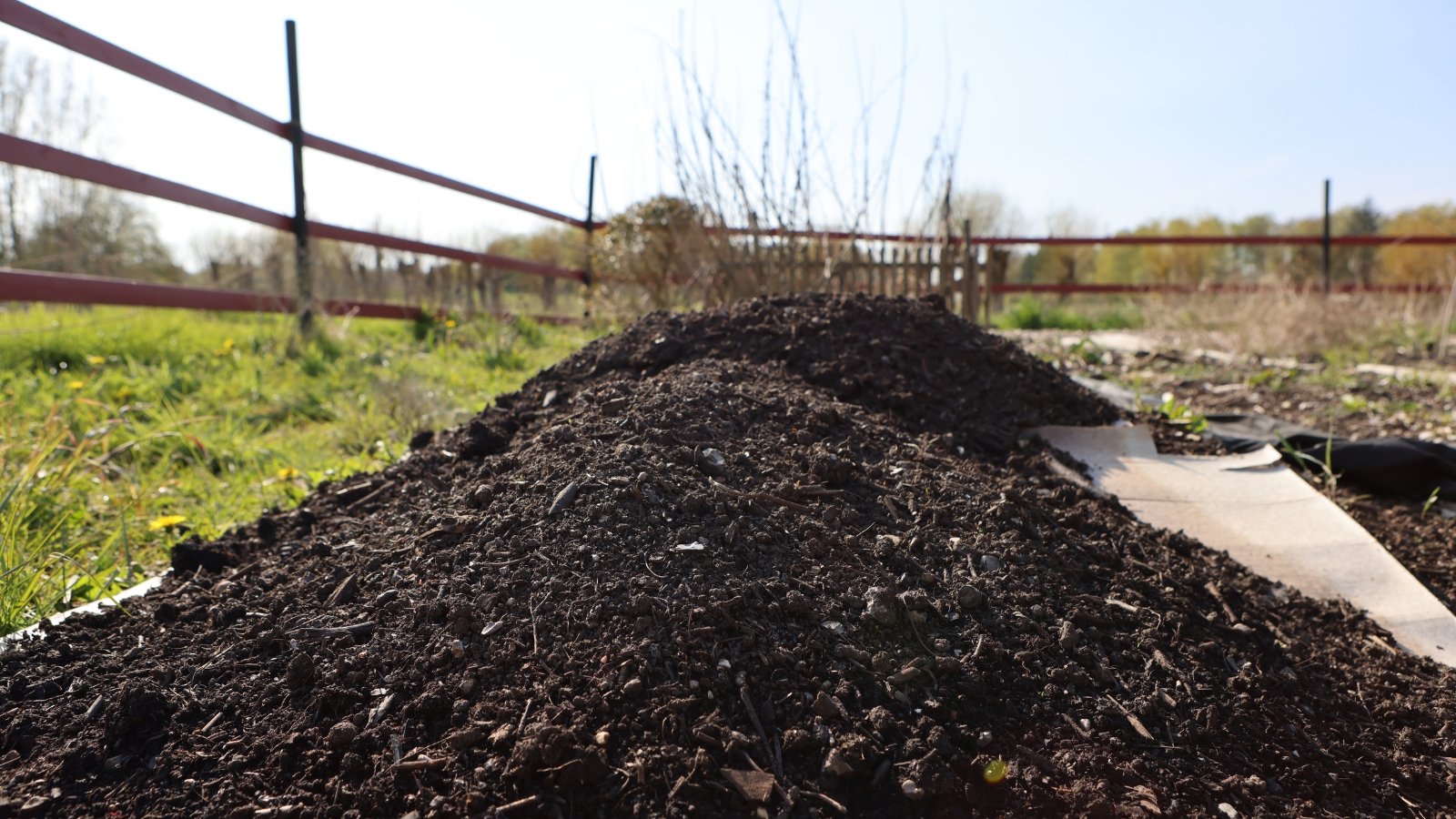

I truly like chilly composting just because it’s massive simple to do! Begin with the equal ratio as scorching compost, with 1:2 or 1:3 elements inexperienced to brown. You’ll nonetheless should level out the fabric, nonetheless rather a lot a lot much less often than with scorching heaps. Intention to flip them in a number of events a month. It will protect anaerobic decomposition at bay and assist rotate the waste so it decomposes evenly.
Though chilly composting is simple, it’s furthermore a extended course of. You obtained’t have prepared soil for on the very least three to 6 months. So, how is it useful? Correctly, chilly decomposition permits you to upcycle waste as you may have it. You’ll be able to repeatedly add biodegradable gives, turning and watering it as wanted.
With scorching compost, you’ll wish to begin the heap and stop along with new waste. Updated particles takes time to interrupt down and slows down fast decomposition. Recycle your waste year-round by sustaining one or two chilly piles that settle for particles readily. Harvest prepared soil by lifting the perfect layers with a pitchfork—beneath ought to lie wealthy, crumbly mud it is important use as mulch, fertilizer, or in a potting soil combine.
Decomposition Charges Differ
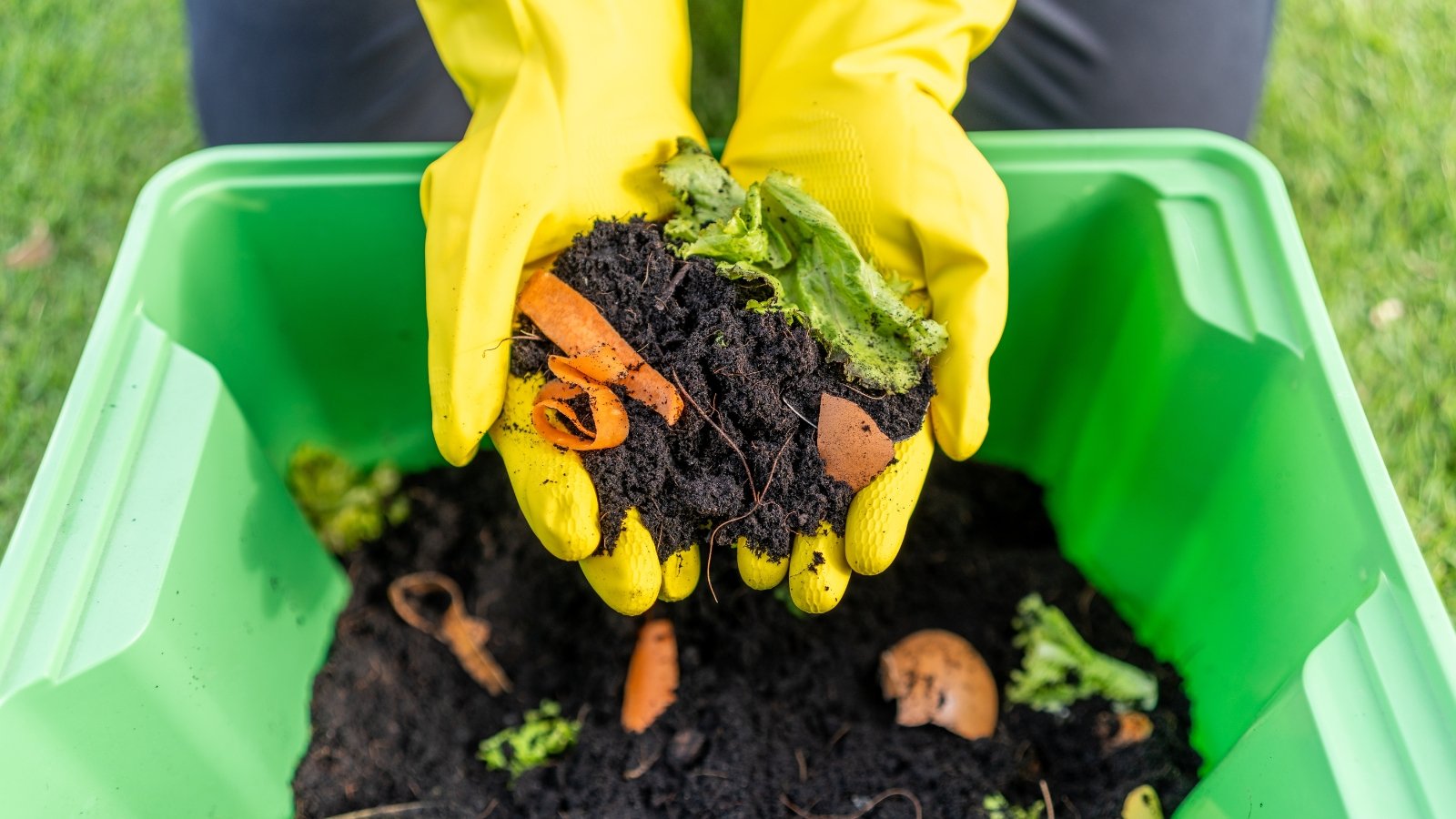

Which methodology you select relies upon upon your wishes and the particles you may have. Picket incorporates an excessive amount of carbon and takes longer to decompose than fleshy, inexperienced gives. Big chunks of picket decelerate scorching decomposition by absorbing nitrogen as they initially break down. This slows them considerably nonetheless is means a lot much less impactful in chilly ones.
A chilly pile is also the next resolution you probably have loads of woody or papery waste all yr prolonged. It’s possible you’ll as nicely make a scorching pile to your yard and kitchen particles and a chilly one to your woody gives. Make sure you steadiness each varieties equally, along with greens and browns in a ratio of two:1 or 3:1.
One completely completely different methodology to velocity up each strategies is through utilizing smaller devices of particles. Use a mower, pruners, or a shovel to interrupt up large chunks into smaller ones. Small particles enable extra microbes and worms to eat them due to they’ve extra floor space that the critters can attain.
Pathogens and Weed Seeds
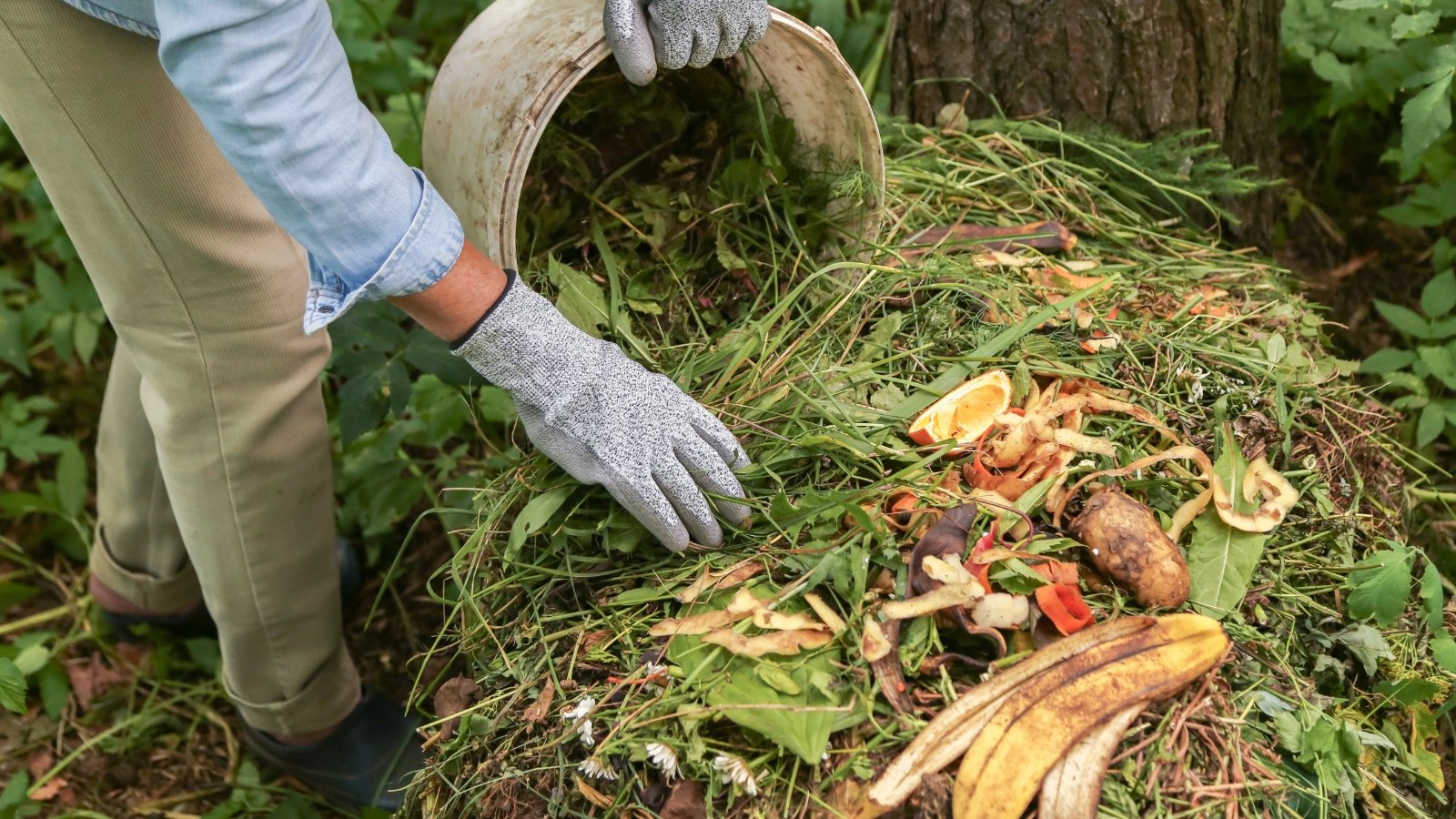

Many sources say to depart diseased leaves and weeds out of your compost, nonetheless the place else would you set them? Scorching composting is a perfect resolution, as excessive temperatures and useful microbes work in tandem to steadiness the pile. Kill most sicknesses and weeds by sustaining temperatures above 104°F (40°C) for 5 days, and guarantee they exceed 131°F (55°C) for 4 hours all by means of this time. Use a soil thermometer to measure your compost when you’re not sure.
You almost certainly have endurance and time, chilly composting may be an setting pleasant resolution for destroying sicknesses. Seeds could persist and sprout whenever you unfold it on the soil. Merely pull the weeds as they sprout and put them on extreme of the soil with out worth mulch—or, add them as soon as extra into your compost!
Destroy sicknesses by letting your chilly heap mature for a yr or longer. Micro organism, fungi, and archaea work in tandem to suppress meals and soil-borne pathogens as decomposition slows in outdated piles. Mature compost may be an anti-pathogen software program program, which suggests you possibly can add it to your raised beds to forestall future crop infections. Make sure you let chilly compost mature for a yr or longer for optimum disease-suppressing outcomes, and apply them as an modification solely as shortly as they provide the impression of being utterly damaged down.
Animal Disturbance
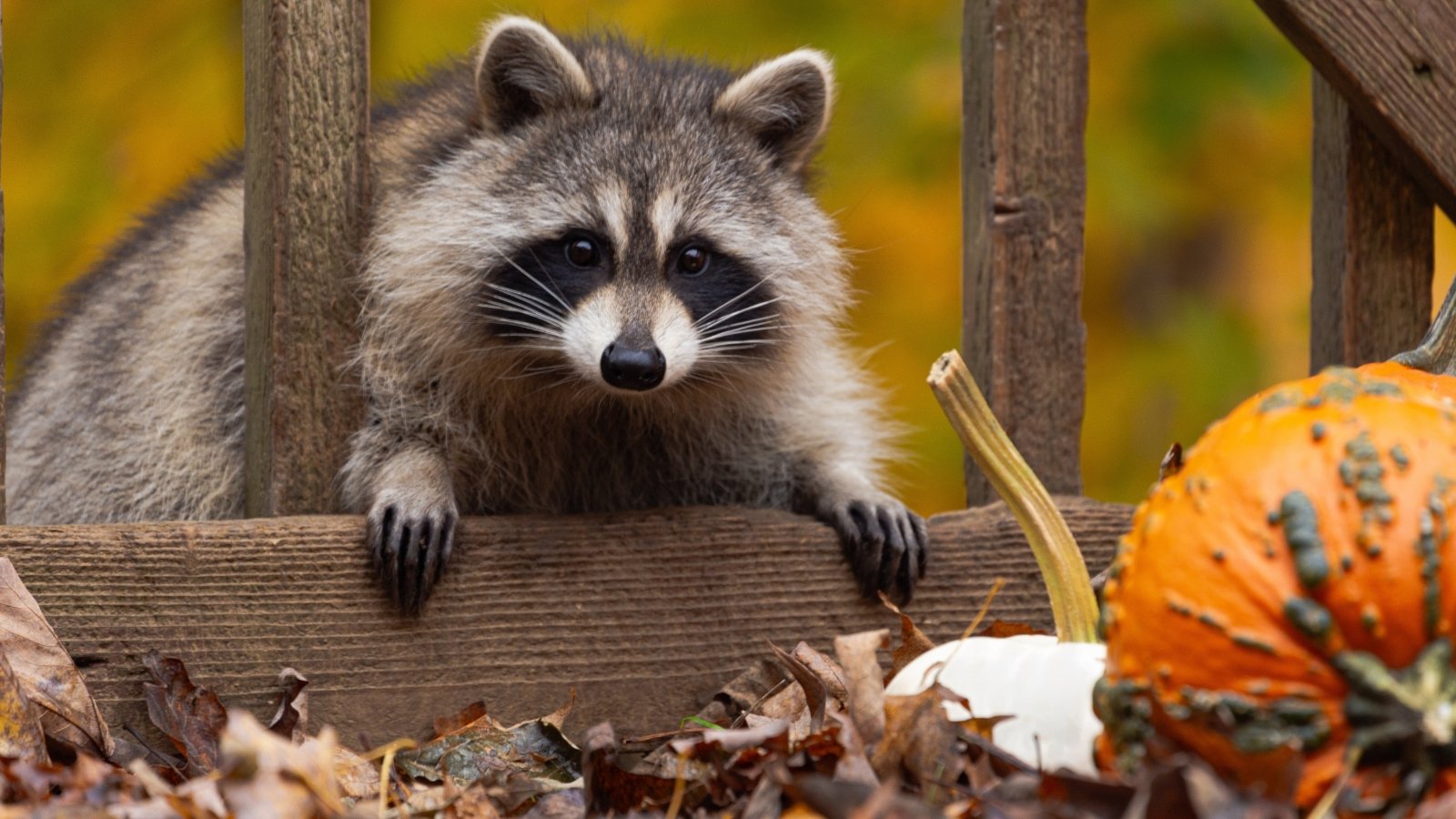

Squirrels, raccoons, and rats flip decomposing compost into a multitude of scraps! You almost certainly have these critters dwelling close to you, go for a scorching pile and use partitions to guard it. Picket pallets work correctly as a fast resolution; nail three collectively to type a U sort. Put your scraps contained inside the U, and place a fourth pallet on the very best to seal up the bin. Wrap the pallets in rooster wire to additional animal-proof them.
Tumblers are furthermore animal-proof composting contraptions since they leisure above floor in a sealed container. The draw once more? They don’t have entry to soil microbes and worms. Restore this by inserting a handful of mud from the underside into the tumbler each time you add particles.
Chilly composting is the one methodology you’ll should keep away from if there are critters spherical you searching for rotting scraps. They’ll uncover them merely, and make a multitude of your gives prior to they’ve the probability to decompose.
Closing Finish Product
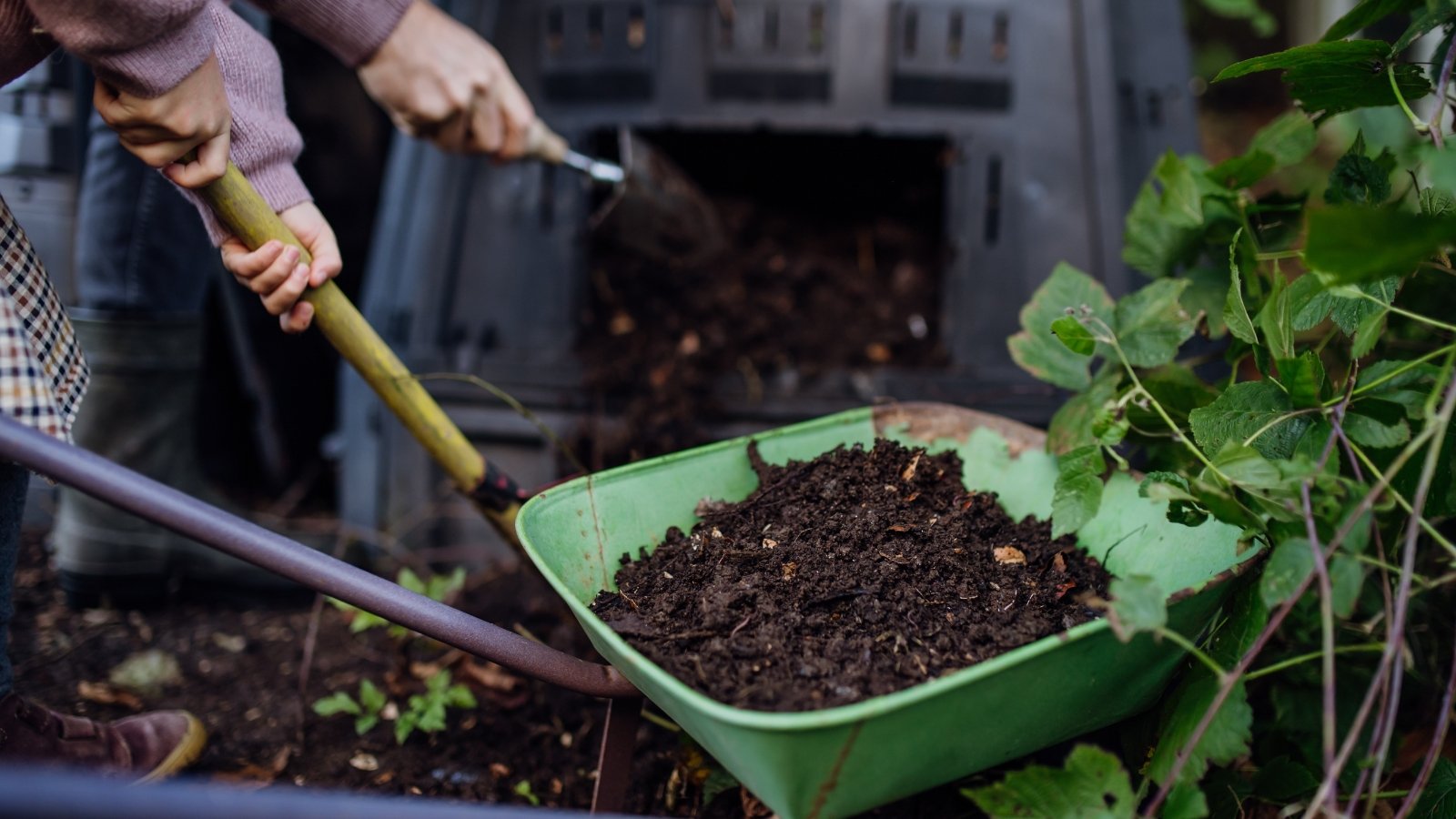

The last word consideration to make is what you need your prepared compost to do. Scorching piles are most fascinating when you’re processing fleshy gives wealthy in nitrogen to level out them into usable varieties that vegetation love. Heaps with loads of greens furthermore are inclined to have extra micro organism than fungi, which advantages vegetation.
Chilly piles have nitrogen nonetheless are often richer in carbon than scorching ones due to their prolonged decomposition course of. Go for chilly composting when you develop loads of vegetation that favor amendments with extra carbon. Carbon-rich composts are inclined to have extra fungi than micro organism.
Incessantly Requested Questions
Compost can exceed 150°F (66°C)! Temperatures above 140-149°F (60-65°C) hurt useful microorganisms and worms. Defend scorching compost beneath this fluctuate by turning it repeatedly.
Scorching compost doesn’t kill worms due to they migrate to areas they like to stay in. If a little bit of your pile is simply too scorching, they’ll relocate to a cooler space.
Chilly compost takes anyplace from six months to 2 years, relying on how often you flip it and the gives it incorporates.
[ad_2]
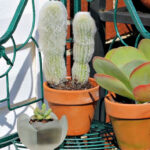


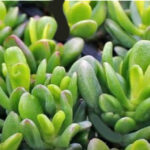
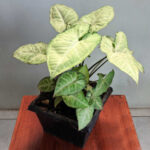
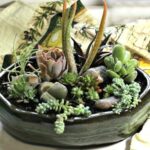
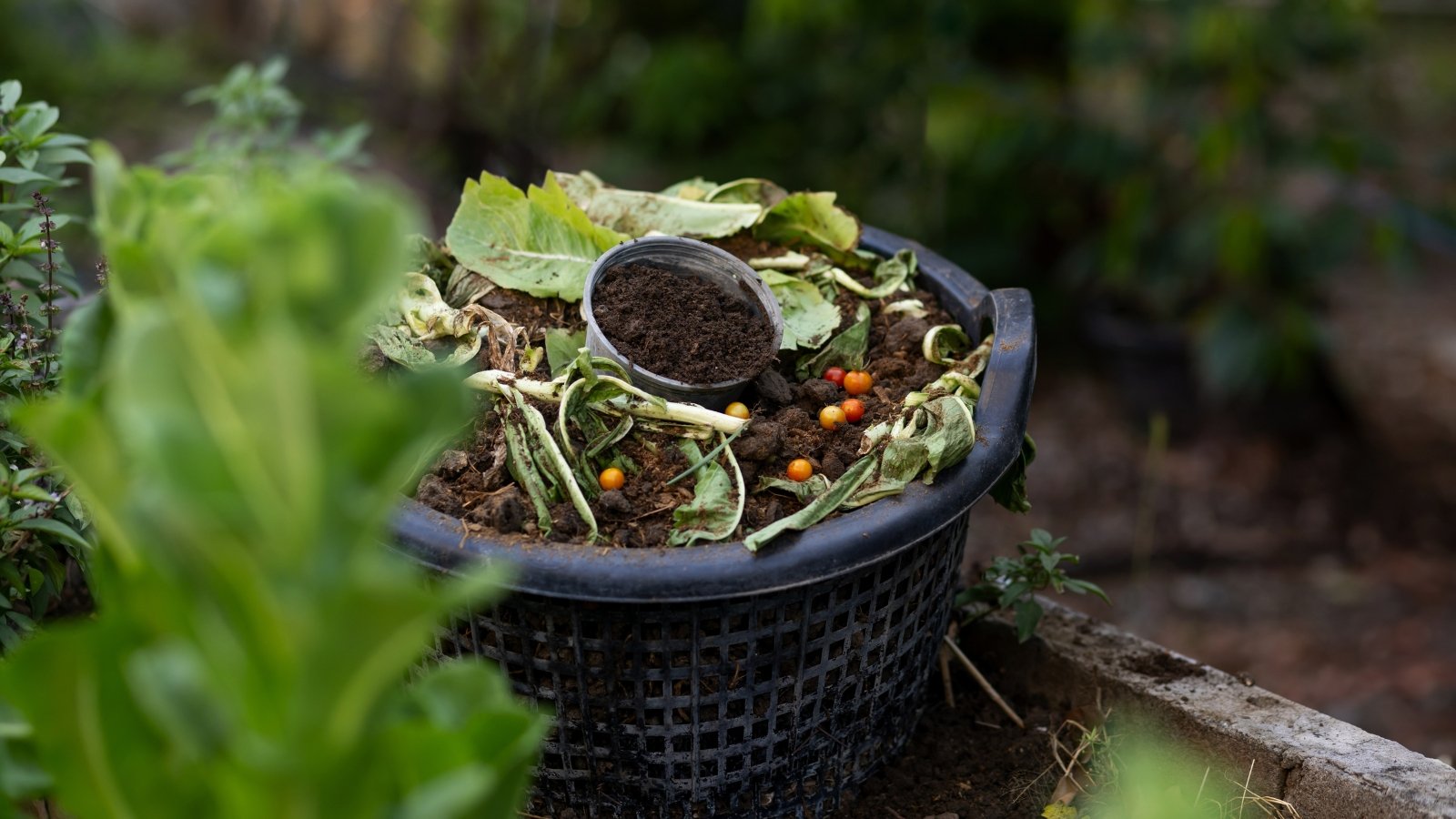
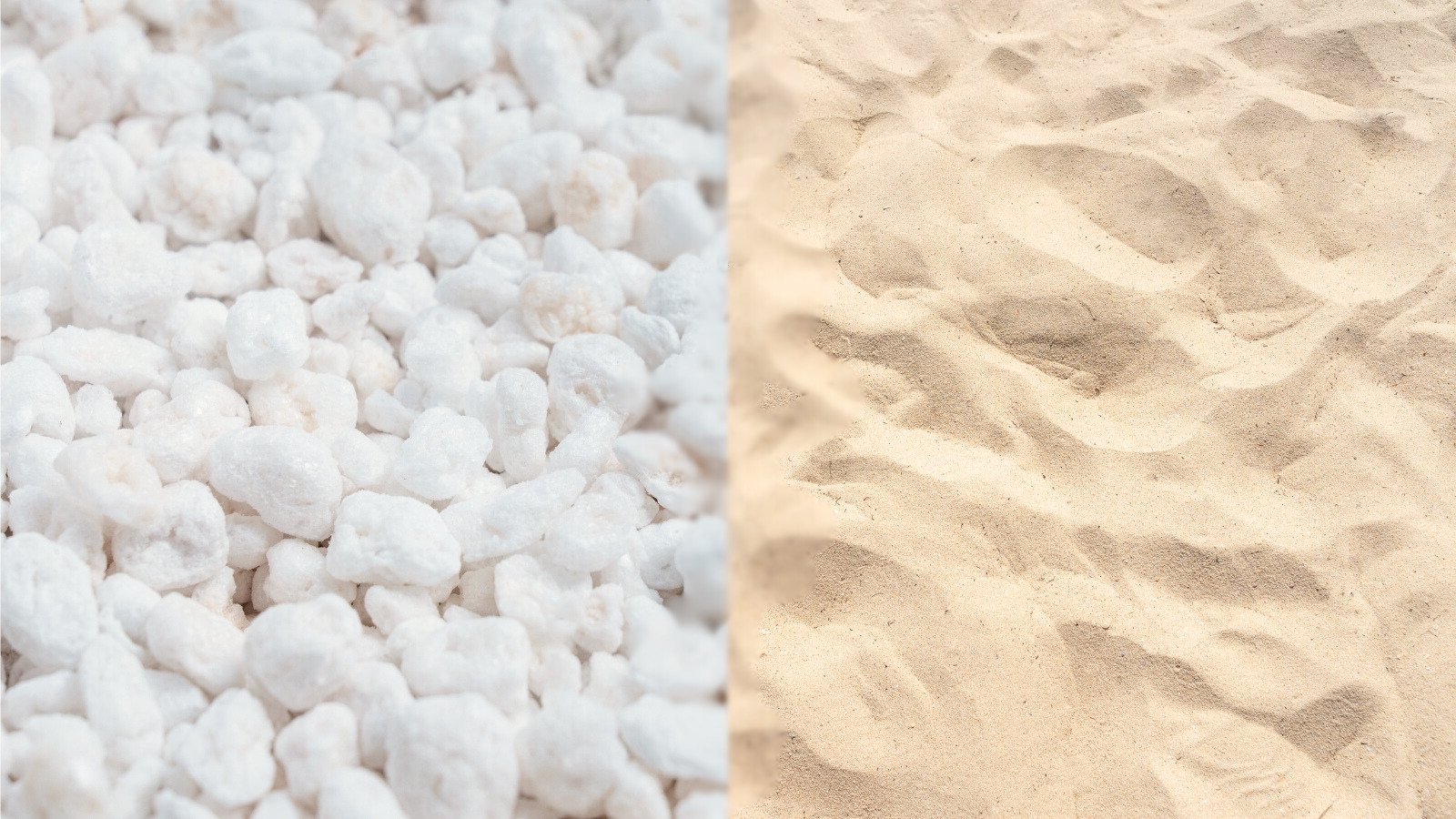
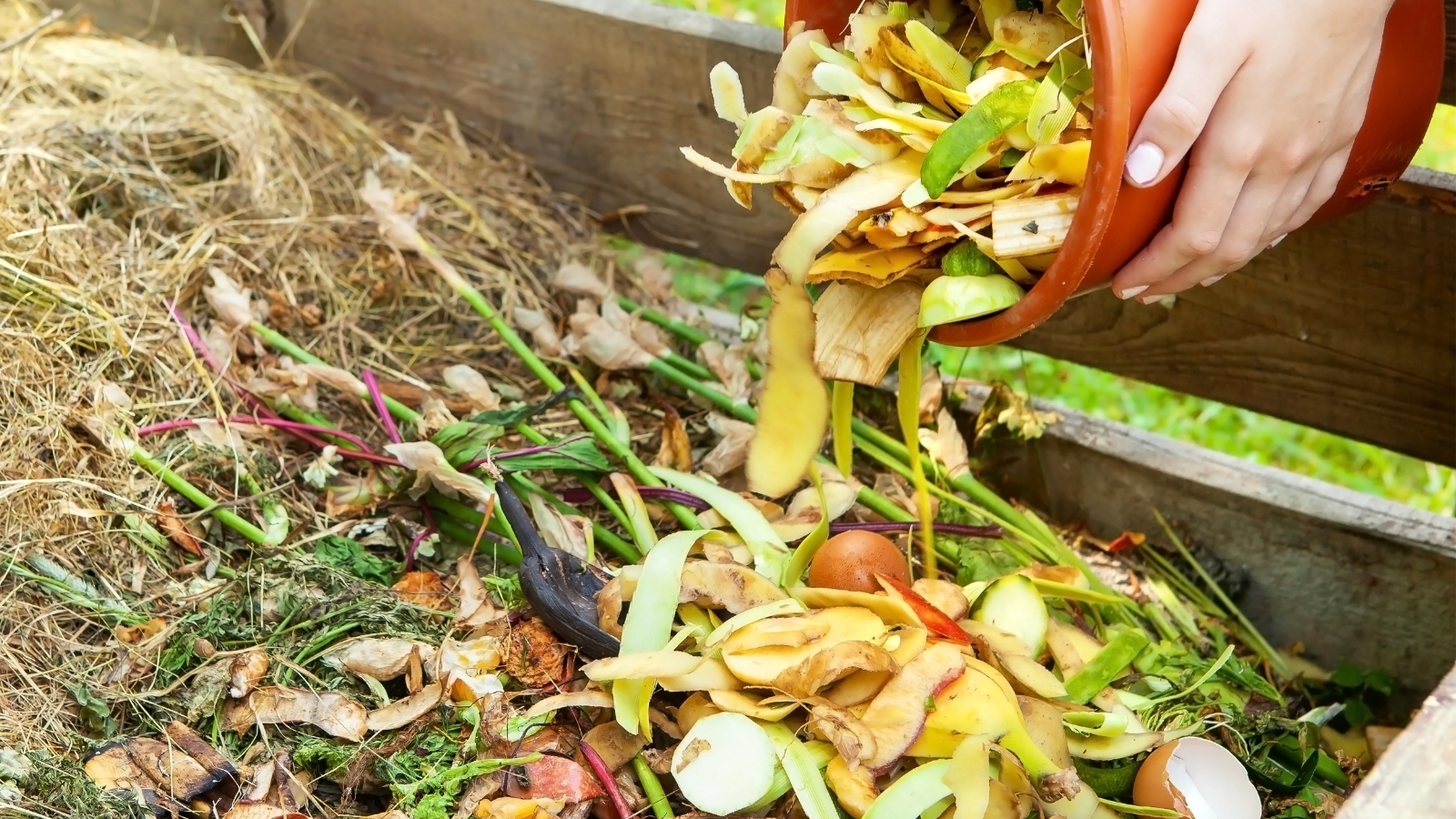
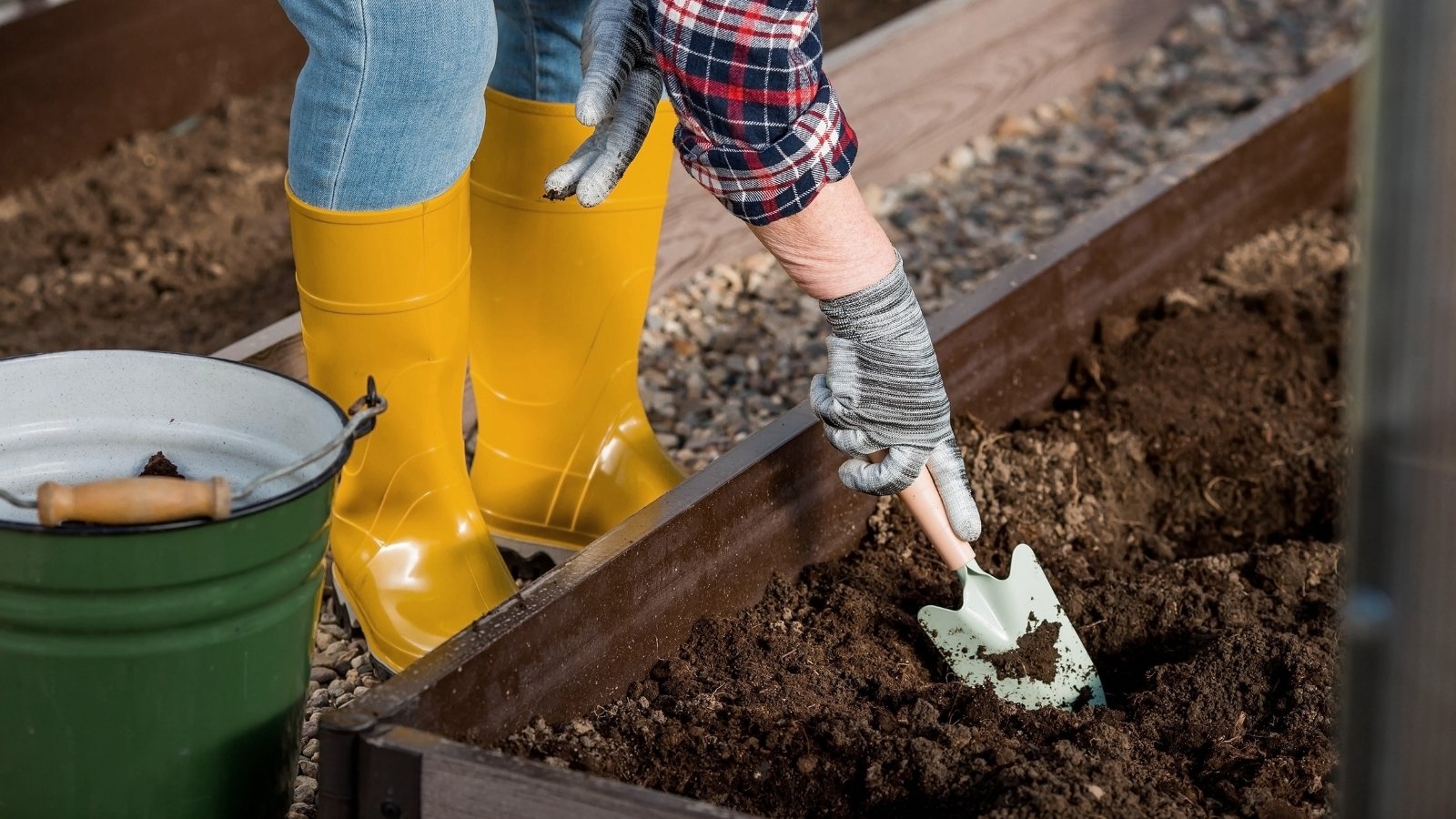
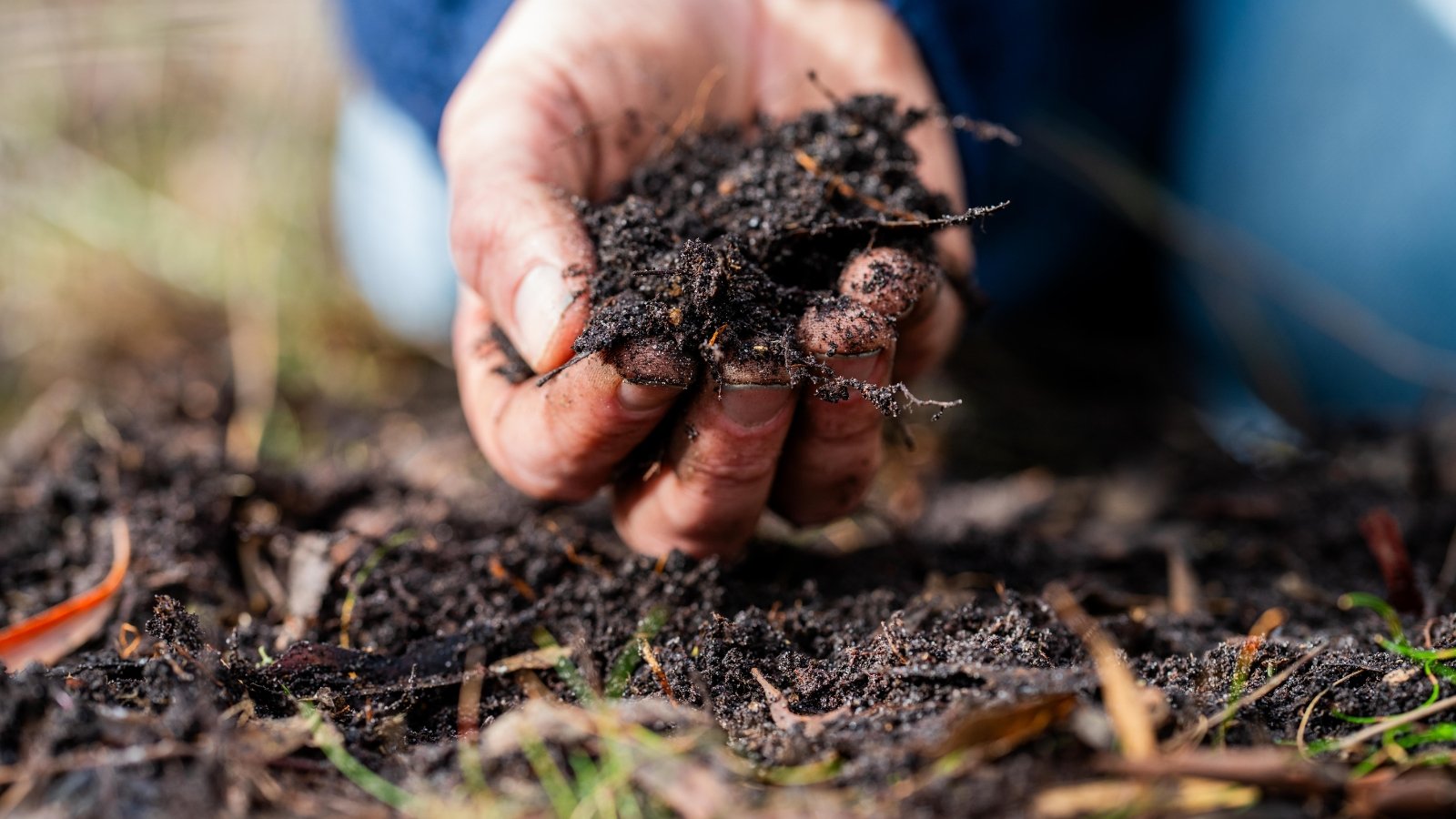
Overall, this article outlines important considerations for both hot and cold composting. I like how it mentions the potential issues with pests and animal disturbances, which is often overlooked in many guides on gardening.
This piece is informative for those considering starting a compost pile. The explanation of the materials and their carbon-to-nitrogen ratios adds value for anyone looking to optimize their composting efforts effectively.
The tips on choosing between hot or cold compost based on available materials were practical. It’s essential to understand how different approaches can benefit various gardening needs, especially for newcomers in organic gardening.
I found the section on temperature management in composting quite enlightening. It’s interesting to learn how maintaining certain temperatures can impact the effectiveness of the process, especially regarding pathogens and weed seeds.
The article provides a clear overview of composting methods. I appreciate the distinction between hot and cold composting, as it helps beginners decide which approach suits their needs better. The details on ratios are particularly useful.